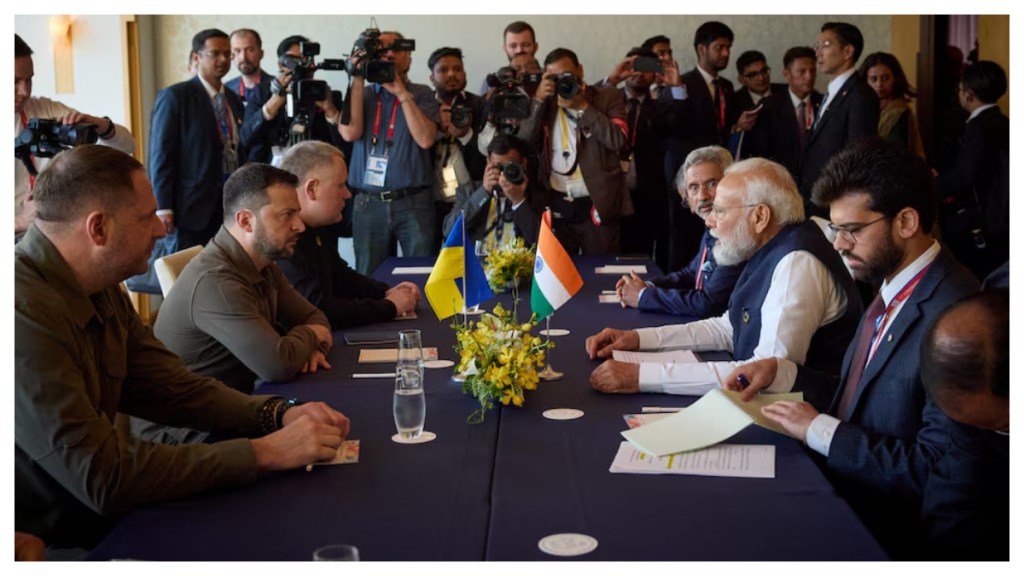Prime Minister Narendra Modi is all set to hold discussions with Ukrainian President Volodymyr Zelenskyy in Kyiv on Friday. This will mark the first visit by an Indian prime minister to Ukraine since the country gained independence from the Soviet Union in 1991. The timing of Modi’s visit is significant given the current turbulent state of the war in Ukraine.
Why is PM Modi’s visit to Kyiv significant?
PM Modi‘s visit to Ukraine comes on the heels of his trip to Moscow in July and is seen as a key move for Kyiv, which is actively working to build diplomatic ties with nations in the Golbal South as part of its strategy to achieve a just resolution to the conflict. It is important to note that Modi’s trip to Moscow had coincided with a severe Russian missile strike on Ukraine that had struck a children’s hospital. This attack led Modi to deliver a pointed but indirect criticism of Putin during their summit. However, the visit drew sharp condemnation from President Zelenskyy, who labeled it “a huge disappointment and a devastating blow to peace efforts to see the leader of the world’s largest democracy hug the world’s most bloody criminal in Moscow on such a day”.
Mykhailo Podolyak, an advisor to President Zelenskyy, told Reuters that Modi’s visit to Kyiv is of great importance. He noted that New Delhi wields considerable influence over Moscow. He said that it is crucial for both countries to build strong relations and to clarify their vision for ending the war.
On Wednesday, Modi expressed his eagerness to discuss potential avenues for a peaceful resolution to the Ukraine conflict with President Volodymyr Zelenskyy. It is reported that PM Modi’s visit to Kyiv will last approximately seven hours.
Volodymyr Fesenko, a political analyst based in Kyiv, does not anticipate any groundbreaking proposals to resolve the conflict during Modi’s visit, which follows his stop in Poland on Thursday. He noted that meaningful negotiations would require a stabilization of the military situation and the completion of the U.S. presidential election, given the close alliance between Ukraine and the United States.
Fesenko emphasized that the visit is significant for India to show that it is not aligned with Russia, and for Kyiv to seek to mend relations following Modi’s trip to Moscow.
Richard Verma, the U.S. Deputy Secretary of State for Management and Resources and a former U.S. ambassador to India, also underscored the importance of Modi’s Kyiv visit. Verma had stated that he values the remarks about the need for peace over war, as this moment is crucial for defending liberty, freedom, and the rule of law.
India, long known for its strong economic and defense connections with Moscow, has condemned the loss of innocent lives due to the Russia-Ukraine war. Despite this, India’s economic engagement with Russia has deepened following sanctions and trade restrictions imposed by Western countries in response to Russia’s invasion of Ukraine. Historically minimal in purchasing Russian oil, Indian refiners have become leading buyers of seaborne Russian crude since Russia’s military action began in February 2022. Currently, Russian oil constitutes over 40% of India’s total oil imports.
(With Reuters Inputs)

